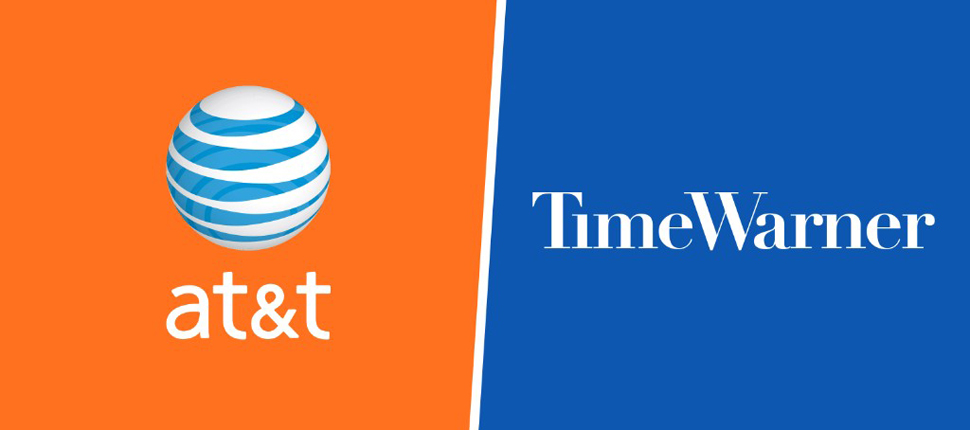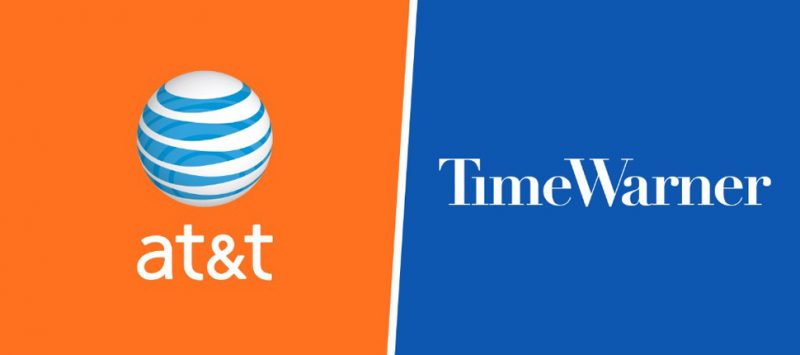MINNEAPOLIS — Media analysts warn that a proposed merger between AT&T and Time Warner is more likely to enhance corporate bottom lines and pad the pockets of Wall Street investors than benefit consumers.
“Big mergers like this inevitably mean higher prices for real people, to pay down the money borrowed to finance these deals and compensate top executives,” said Matt Wood, policy director at Free Press, an NGO that protects net neutrality and online press freedom, in an Oct. 22 press release.
The media first reported that AT&T was in “informal” talks to merge with Time Warner on Oct. 20. By Oct. 24, AT&T announced that Time Warner had agreed to be bought out by the telecommunications giant for $85.4 billion.
Currently, Time Warner represents one of a shrinking number of mass media conglomerates that increasingly control the vast majority of news available to Americans. AT&T is one of the world’s largest providers of mobile phone and landline services, and, as owner of DirecTV, a major player in the television marketplace as well.
Corporate executives have promised that the merger could make more content available to consumers, offer new options for mobile viewing, and provide alternatives to traditional cable TV. Representatives of both companies have also tried to mollify concerns that the deal would violate antitrust laws, claiming it represents the “vertical integration” of two different markets, rather than a merger of competitors.
Many media experts have expressed concern and skepticism about these claims, particularly in regard to the potential benefits to consumers. Wood suggested AT&T’s buyout of DirecTV, which was completed in July 2015, should serve as a warning about the possible effects of this new, larger merger model. He warned:
“The deals are driven by Wall Street’s insatiable desire for short-term growth at any cost. And just as AT&T’s recent purchase of DirecTV was quickly followed by price hikes, there’s every reason to expect this potential tie-up would cost internet users and TV viewers dearly too.”
Kevin Kelleher, a reporter at Time magazine, weighed in on Oct. 24. He wrote that the deal “makes sense for media executives, less so for consumers,” as it’s unclear how bringing content creators and internet service providers together would actually benefit the end user. He continued:
“For now, concerns over the deal seem to be outweighing the benefits, which could end up being negligible. For decades, the pipes that streamed digital content remained largely independent from the companies that provided the content. And no consumers complained.”
Meanwhile, several senators have come out in opposition to the proposed merger, citing concerns about the ultimate implications for consumers, the role of Washington’s “revolving door” into the corporate world, and what this buyout could mean for the future of media consolidation.
On Sunday, Al Franken, a former TV actor and senator representing Minnesota, told The New York Times’ media reporter Jim Rutenberg that the merger could increase prices and reduce the number of choices available to consumers.
“When the company that controls the pipes, so to speak, owns this very, very large content provider, it can cause a whole bunch of different horribles for consumers,” Franken said.
Elizabeth Warren, a senator from Massachusetts known for her consumer advocacy, objected to Christine Varney’s involvement in the deal. Varney, an antitrust lawyer who has been hired to oversee the AT&T and Time Warner merger, previously worked for the Obama administration investigating antitrust claims. On Monday, Warren told Fortune:
“Americans have had it with regulators like Varney, who talk a good game about holding the bad guys accountable while counting down the days until they can collect a fat paycheck from the corporations they were supposed to regulate. The revolving door is out of control. If we want to hold corporate lawbreakers accountable, we can’t ask their friends to do it.”
Bernie Sanders, the senator from Vermont and former 2016 Democratic presidential candidate, also objected to the deal in an open letter published Wednesday on Medium. In addition to echoing the concerns shared by others like Franken, he warned that the buyout could provoke future media mergers that would further consolidate an already limited market.
“At a time when our telecommunications and media industries are already too concentrated, we should be focused on opening those markets to more competition, not less,” he wrote.
In the case that the merger does go through, AT&T’s ties to the national security state may also give rise to serious privacy concerns. A day after the AT&T-Time Warner merger was officially announced, Kenneth Lipp, a reporter at The Daily Beast, revealed that AT&T is storing customer information and selling it for profit. That, of course, came more than three years after Edward Snowden leaked classified information which detailed the telecommunications giant’s close collaboration with the NSA to spy on millions of Americans.
“Where you go, what you watch, text and share, with whom you speak, all your internet searches and preferences, all gathered and ‘vertically integrated,’ sold to police and perhaps, in the future, to any number of AT&T’s corporate customers,” Democracy Now! host Amy Goodman and her frequent collaborator, Denis Moynihan, wrote in an editorial published on Thursday.
“We can’t know if Alexander Graham Bell envisioned this brave new digital world when he invented the telephone. But this is the future that is fast approaching, unless people rise up and stop this merger.”



